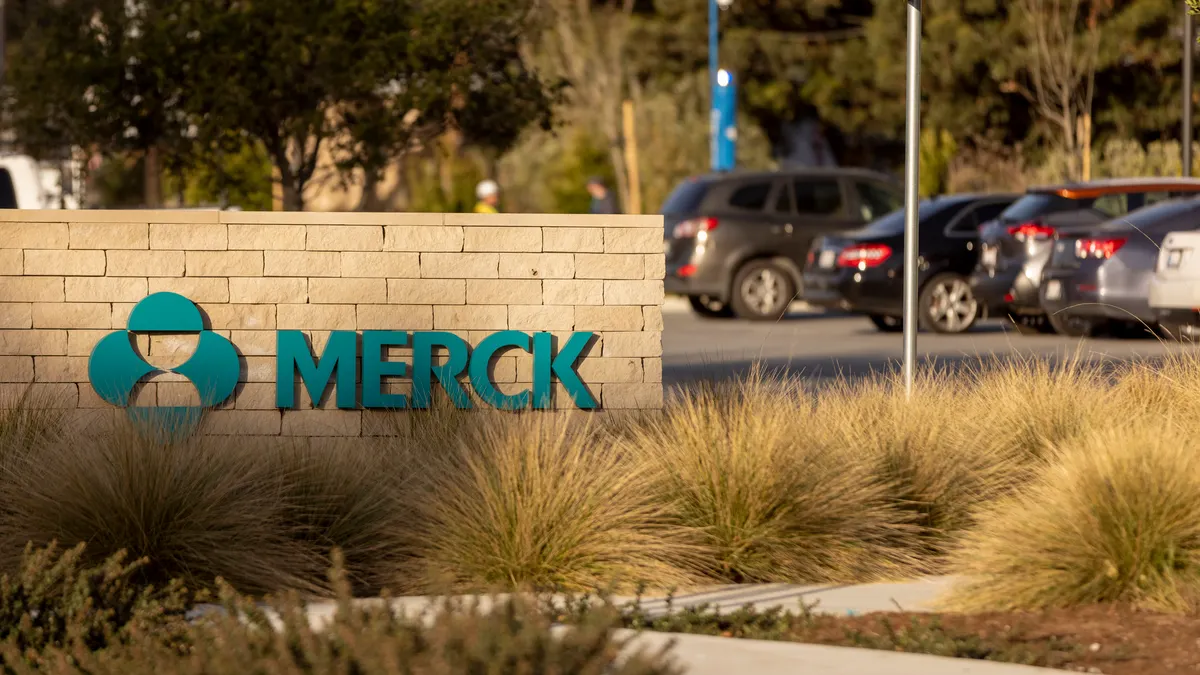Dive Brief:
- Merck & Co. is launching a new cost-cutting program, announcing Tuesday a plan to redirect by the end of 2027 $3 billion away from older, slow-growth businesses to newly launched drugs and experimental medicines it hopes can drive faster revenue growth.
- The move comes as Merck prepares for generic competition to its cancer blockbuster Keytruda beginning in 2028 in the U.S. Research and development, sales and manufacturing functions will be affected as Merck seeks to support the newer drugs.
- Merck is already facing faltering topline sales as its second biggest drug, the HPV vaccine Gardasil, has struggled in China and Japan. CEO Rob Davis told investors that executives “expect a return to growth” in the second half of 2025, following a second quarter in which Merck recorded a 2% fall in sales compared with the same period one year ago.
Dive Insight:
In the company’s second quarter earnings call, executives didn’t go into detail about how spending within the company would shift. However, Davis dropped a hint that spending behind Keytruda would fall in favor of newer products like the cancer medicine Welireg or an experimental dual-acting drug licensed from LaNova Medicines.
“We’re not looking to pull back on spending in oncology,” he said. “It’s about reallocating our resources and focusing our resources so it’s not just about Keytruda. You’re going to see greater growth spend as you see Keytruda pull back.”
Pipeline products and newly launched drugs represent a $50 billion “commercial opportunity” by the mid-2030s, Merck’s executives claim. Of that, new oncology medicines account for $25 billion in potential sales and new cardiometabolic drugs like Winrevair and an experimental cholesterol drug make up $15 billion, while HIV and immunology medicines are another $5 billion each, Davis said.
Merck also recently agreed to buy Verona Pharma in a $10 billion deal that will add a newly approved lung disease drug to its pipeline.
Still, Merck faces near-term challenges as it confronts falling sales from Gardasil. It has paused China shipments through at least the end of 2025, and also faces slowing revenue in Japan. Meanwhile, in the U.S., the Centers for Disease Control and Prevention may move to recommend a single dose of Gardasil rather than the two to three now used, further limiting sales.
Total sales in the second quarter were $15.8 billion, down from $16.1 billion in the same period in 2024. Merck is forecasting 2025 sales of between $64.3 and $65.3 billion, compared with the $64.2 billion it recorded in 2024.
Shares fell more than 3% in morning trading.













